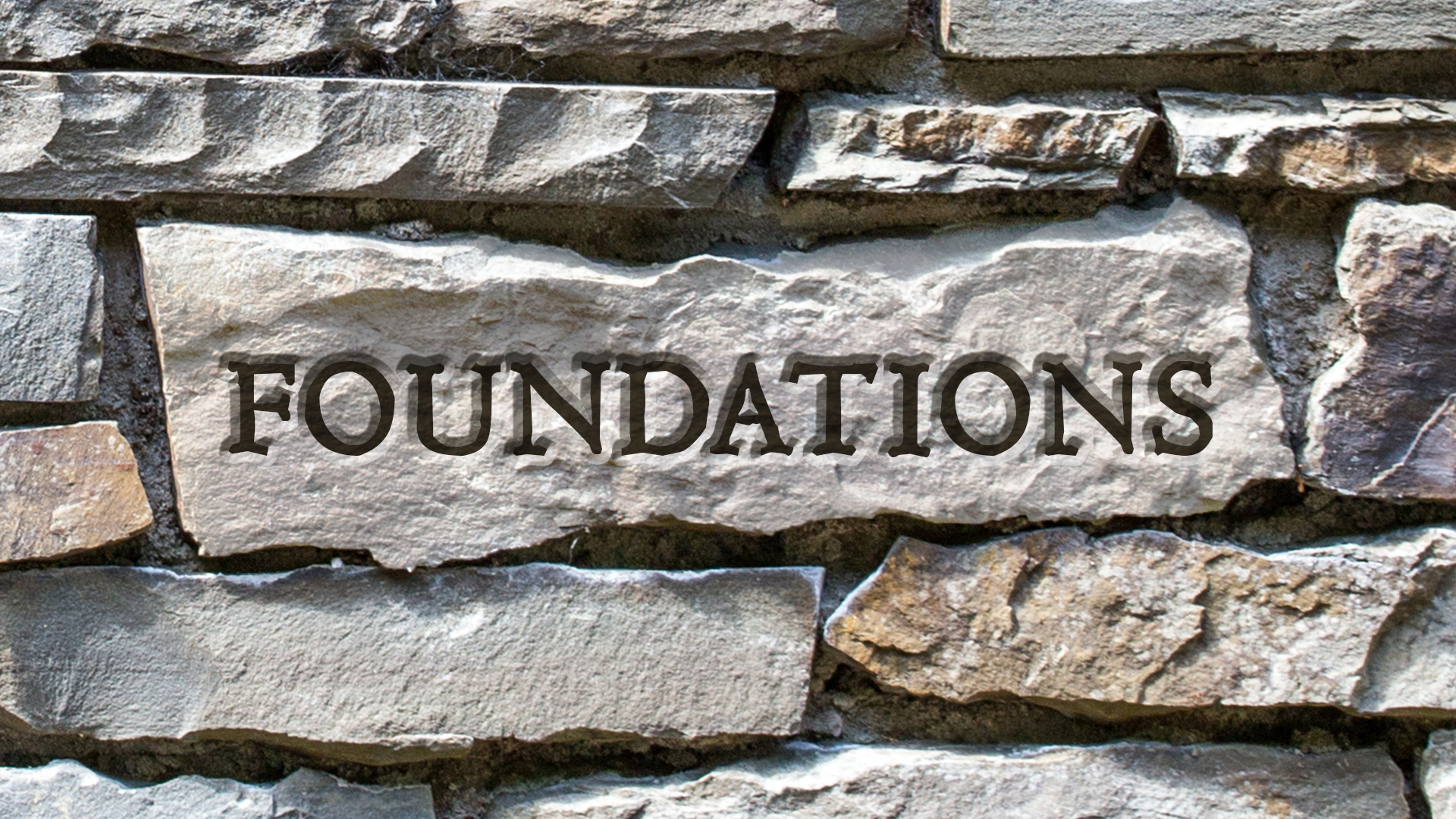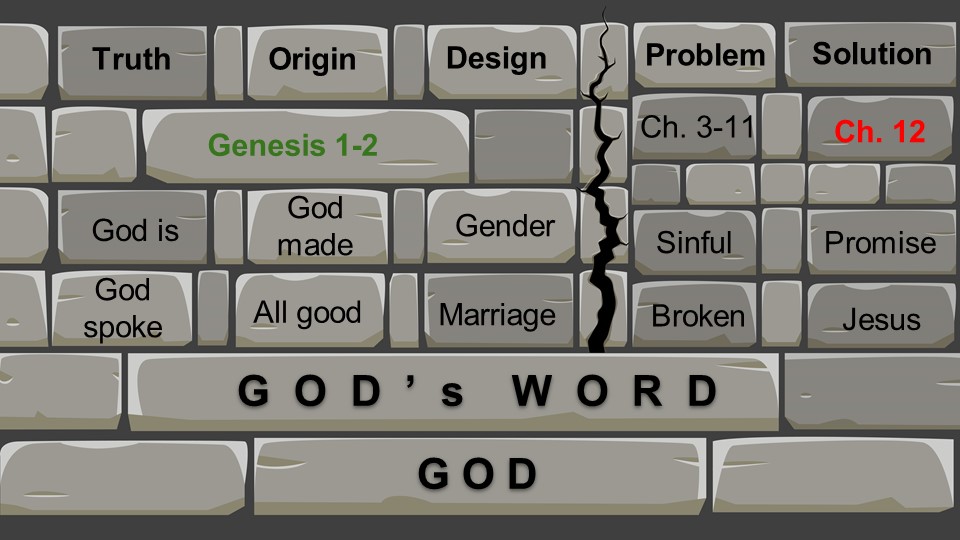
On August 15 (2021) we begin a new series on a Christian worldview. What are the foundational beliefs on which our faith and purpose rest? How do those core convictions compare with other prominent worldviews?
The fact is that everyone has a worldview. Everyone lives based on beliefs about God, truth, morality, purpose and eternity. Everyone has assumptions and draws conclusions about the problems in the world and the best solutions to them.
The first question of any worldview relates to truth. What is true? What is real? How do you know? Your ideas about God immediately follow from this point of departure. Is it true that there is a God? What kind of God? How do you know?
Even an atheist must answer these questions. By denying the existence of God the atheist is making a bold truth claim and must consider 1) the basis for this position and 2) its relative strength compared to a worldview that includes God. The atheist may feel he has a strong rationale to deny the existence of God based on the amount of evil and suffering in the world. But even if you grant that point, the atheist immediately runs into a worldview problem in explaining where everything came from. Secular materialism and Darwinian evolution has taken great pains to explain the development of life as we know it through random progression over billions of years. But it takes a lot of faith in “science” – truly blind faith – to believe that everything sprang from nothing in “the big bang.” There is no scientific explanation for that kind of phenomenon. It must be believed based on faith. (Check out Geisler/Turek’s excellent book I Don’t Have Enough Faith to be an Atheist.)
Here is an overview of what this nine week series will cover.

Every worldview must answer five questions:
- What is truth (and where do you find it)?
- Where did everything come from?
- How should we live?
- What is wrong with the world?
- How can we address these problems?
For a detailed presentation of the Christian worldview, order The Unshakable Truth by Josh and Sean McDowell.
We will begin, as the Bible does, with the doctrine of God. “In the beginning, God…” (Genesis 1:1). To understand yourself and the world we live in, you must begin with God. “The fear of the Lord is the beginning of knowledge” (Prov. 1:7). A.W. Tozer helpfully said, “What comes into your mind when you think about God is the most important thing about you.” Your understanding of God and His nature will determine what you believe about everything else and how you live your life. And the Bible is clear – if you want to know God, look at Jesus.
"In the beginning was the Word, and the Word was with God, and the Word was God. He was with God in the beginning. Through him all things were made; without him nothing was made that has been made. In him was life, and that life was the light of all mankind. The light shines in the darkness, and the darkness has not overcome it." John 1:1-5
Jesus is the light of the world – the complete and final revelation of the nature of God. Apart from Jesus, people are lost and blind. But all who come to Jesus in faith step from darkness into light – and begin to see the world as it actually is. The cornerstone of the Christian worldview is the knowledge of God in the person of Jesus Christ.
God is truth. Jesus embodies that truth. We know about God and Jesus through the Bible. Is it circular reasoning to say, “We believe in God because of the Bible and we believe in the Bible because of God”? Yes. But all philosophical arguments for meaning are ultimately circular too.
- “I believe in science and a physical explanation for everything because of science.”
- “I think that all religions are the same because that position feels right to me.”
- “I am a Muslim because Islam is the true religion as revealed in the Quran.”
The Christian worldview has the singular advantage of Jesus Christ, separating our belief system from any other set of beliefs. The person of Jesus of Nazareth undoubtedly lived in Israel around 2,000 years ago. His life and teachings are documented not only the New Testament but he is mentioned by the Jewish historian Josephus and the Roman historian Tacitus – neither of whom were Christians or had any motive for being favorable about a Jewish Rabbi / revolutionary. Plus many archaeological discoveries have confirmed the details in Scripture. And the resurrection of Jesus is the best explanation for all the data surrounding his death and the rapid growth of the early church. Fundamentally we believe in the Bible because Jesus did. This makes Christianity the only worldview that actually escapes circular reasoning to support itself.
With Jesus as the cornerstone of our faith, we construct our worldview (as He did) on the unshakable foundation of God and His Word. Since God is true and unchangeable His Word is true and perfectly trustworthy. The hundreds of prophecies in the Bible that were fulfilled in Jesus simply illustrate and confirm the faithful character of God. Unlike you and I, who struggle to always keep our word, God always keeps His Word. In fact, God’s Word is so inseparable from His nature that Jesus is called “the Word of God.” What God says He does. Period.
That is our firm foundation – the God of all truth who has made Himself known in the pages of Scripture. Many denominations in the U.S. are splintering and collapsing because they have compromised their understanding of the Bible. The inspiration and inerrancy of Scripture is the basis for everything else we believe. By weakening their view of God’s Word, these denominations allowed cracks to form in their understanding of many basic truths – such as basic principles of gender identity and marriage between one man and one woman for a lifetime.
This is why it is a critical time in American history for us to review these basic doctrines of the Christian life – to solidify our commitment to the essentials of the faith, and draw lines from which we will not retreat. The Almighty Creator of all things, to whom we owe our existence and gratitude for everything we have, designed everything – including us – according to His own pattern. If we rebel against His clearly revealed will for us, we will suffer the consequences of that rebellion. God has a plan for your life, your morality, your relationships and your purpose. The more you follow that plan the fewer problems you will experience and the greater happiness and fulfillment you will experience – even when things go wrong.
Because they can and will go wrong. Genesis 3 shows us what broke our world – human sin. When God completed His creation it was “very good.” There was no disease or death or sin or sadness. Rather, there was perfect harmony both horizontally between Adam and Eve and vertically between people and God. But as soon as Adam and Eve ate the forbidden fruit, the world cracked on its foundation and sin seeped into every crack. The fall of man shows us that “the heart of the human problem is the problem of the human heart” (Rico Tice, Christianity Explored). If you think your biggest problems are outside of you (usually in other people) it will dramatically affect how you go about solving them. But if you know that your biggest problem is the sin inside of you, you will live with a deep humility and gratitude that will infuse every relationship and activity of your life.
Truth. Origins. Design. Problem. Solution. The better we understand the problem of sin the more we will appreciate the grace and mercy of God to address that problem in Christ. Your reward for reading this far is a fantastic video from Tim Mackie of the Bible Project. Most people (including Christians) have a woefully inadequate understanding of the gospel of Jesus Christ. The problem is far bigger than you realize and the solution is far better than you imagine.
